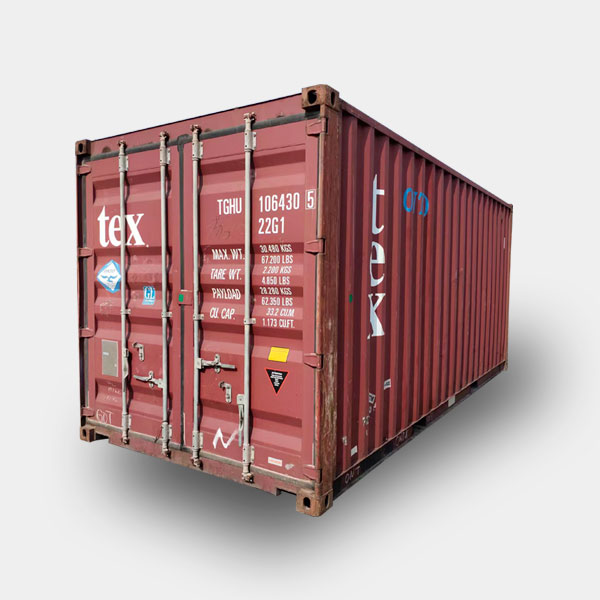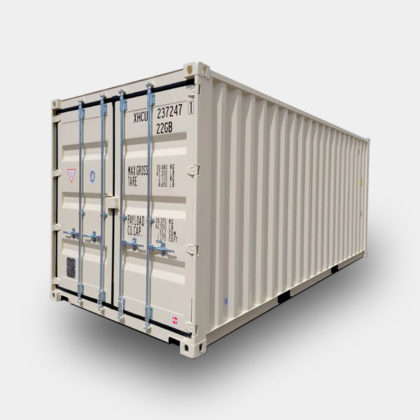The 20-foot standard shipping container is a cornerstone of global trade and transportation. Crafted from rugged and corrosion-resistant steel, this container is renowned for its durability and reliability. It adheres to standardized dimensions, ensuring compatibility across different modes of transportation, such as ships, trains, and trucks. Its spacious interior can accommodate a substantial volume of cargo, making it a versatile choice for various industries. Whether used for shipping goods across continents, repurposed into portable offices, or transformed into innovative retail spaces, the 20-foot standard container remains an essential tool in facilitating the movement of goods and materials on a global scale.
Dimensions
| 20′ Standard Height | Dimensions |
|---|---|
| Internal Length | 5.9m / 19.4ft |
| Internal Width | 2.3m / 7.9ft |
| Internal Height | 2.3m / 7.9ft |
| External Length | 6.1m / 20ft |
| External Width | 2.44m / 8ft |
| External Height | 2.59m / 8.5ft |
| Tare Weight | 2,300kg / 5,071.5 lbs |
| Payload Capacity | 25,000kg / 55,126.9 lbs |
| Cubic Capacity | 33.2 m3 / 1,172 cu ft |
Required Clearances
To ensure a successful delivery of your shipping container, it is important to have adequate clearance and space prepared.
- 40 ft. container: 100 ft. of straight clearance is required
- 20 ft. container: 60 ft. of straight clearance is required
The measurement should be taken from the point where the back of the container will sit.
Additionally, the truck delivering the container will require a total width of 12 feet. To safely drive under any obstacles, 14 feet of vertical clearance is necessary for the truck and container. At the actual delivery site, there should be a vertical clearance of 16-20 feet (depending on the truck and trailer) to ensure a safe tilt-off delivery.


